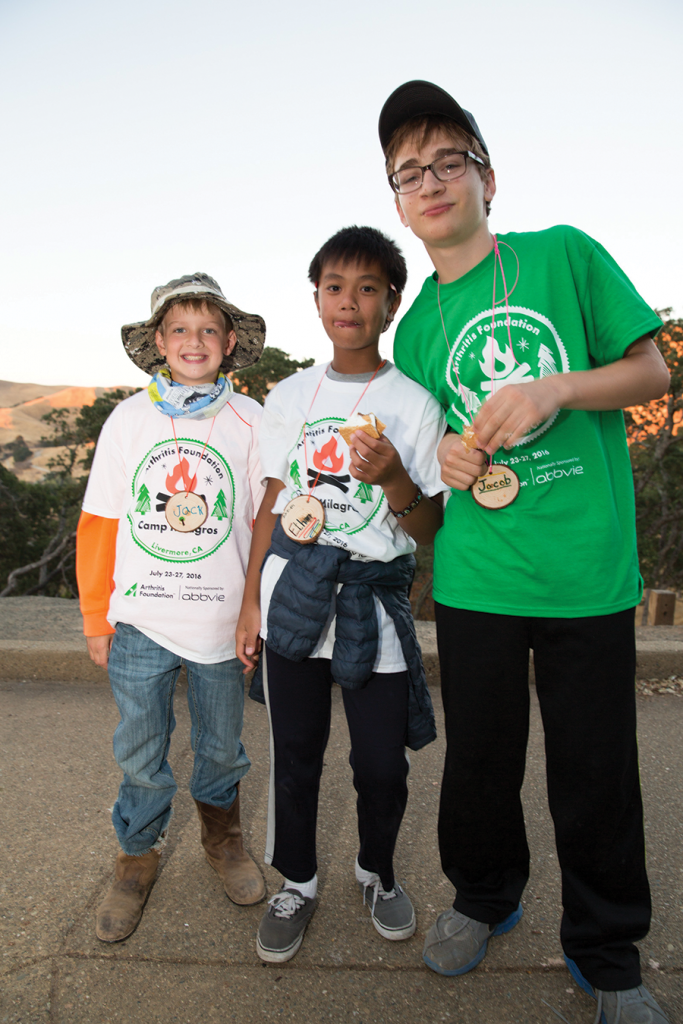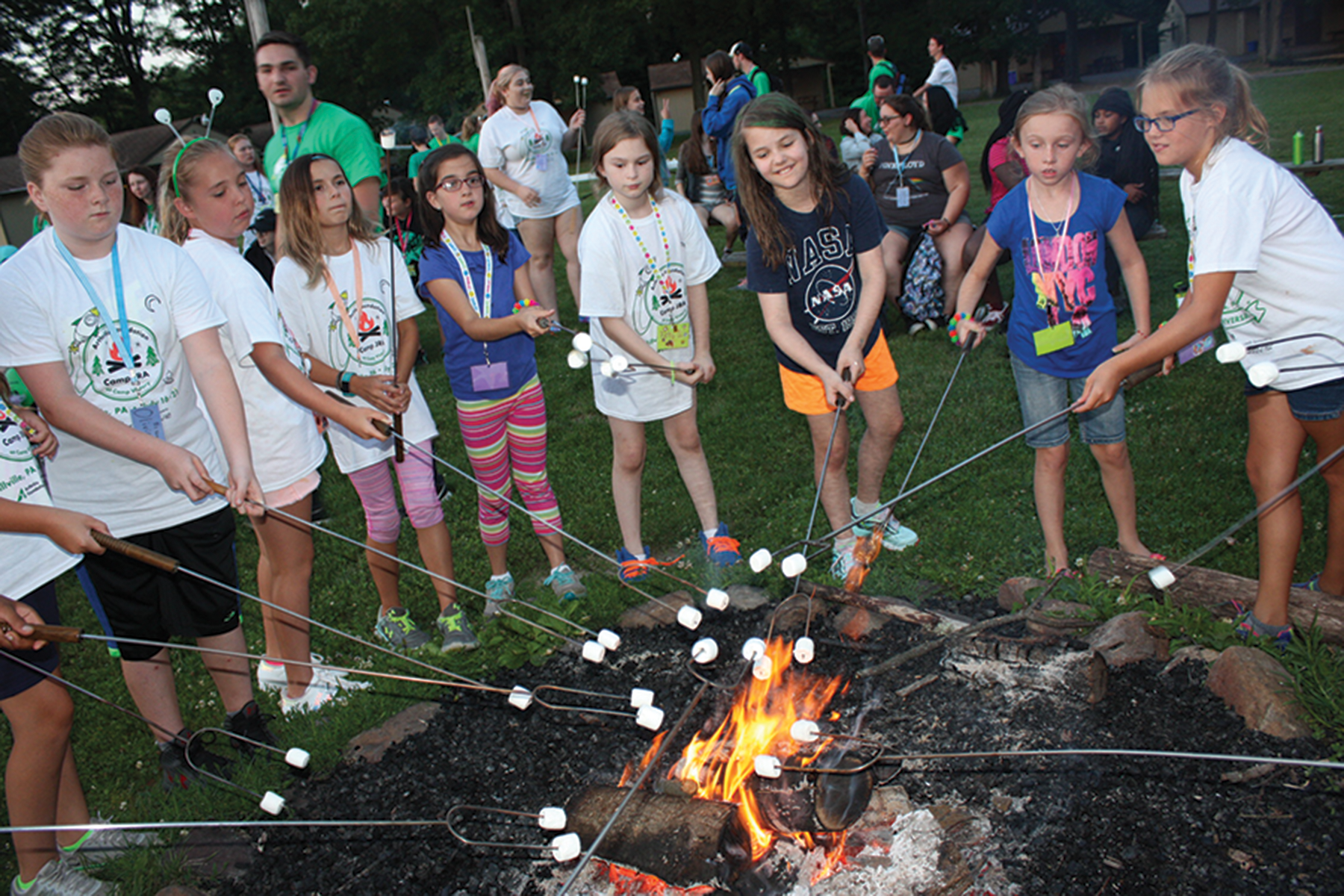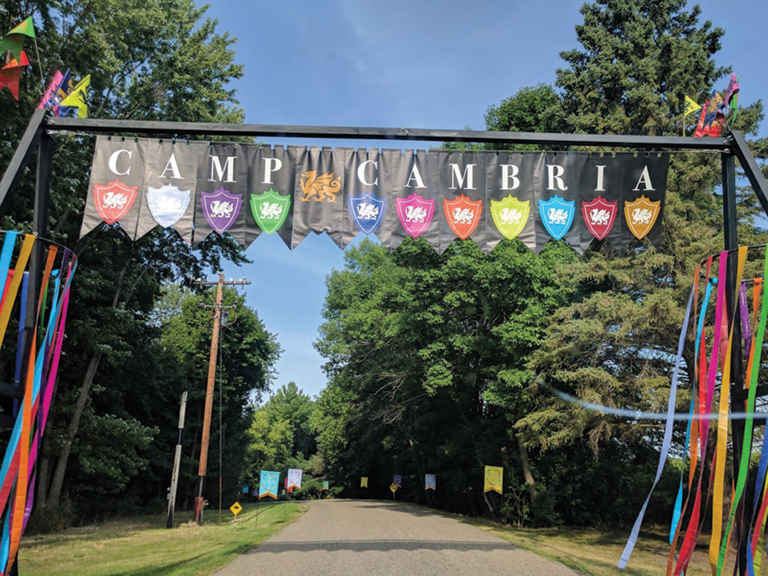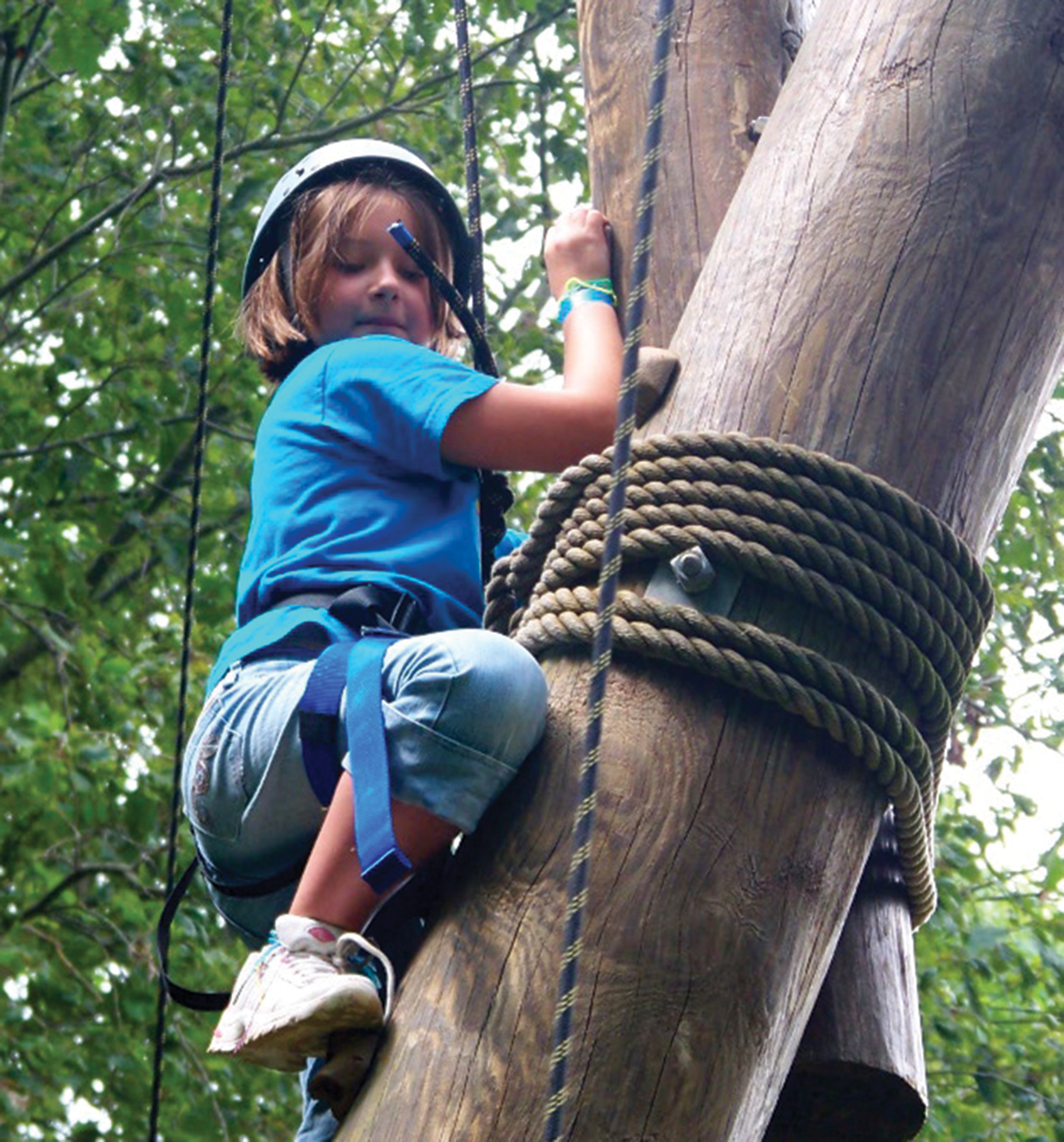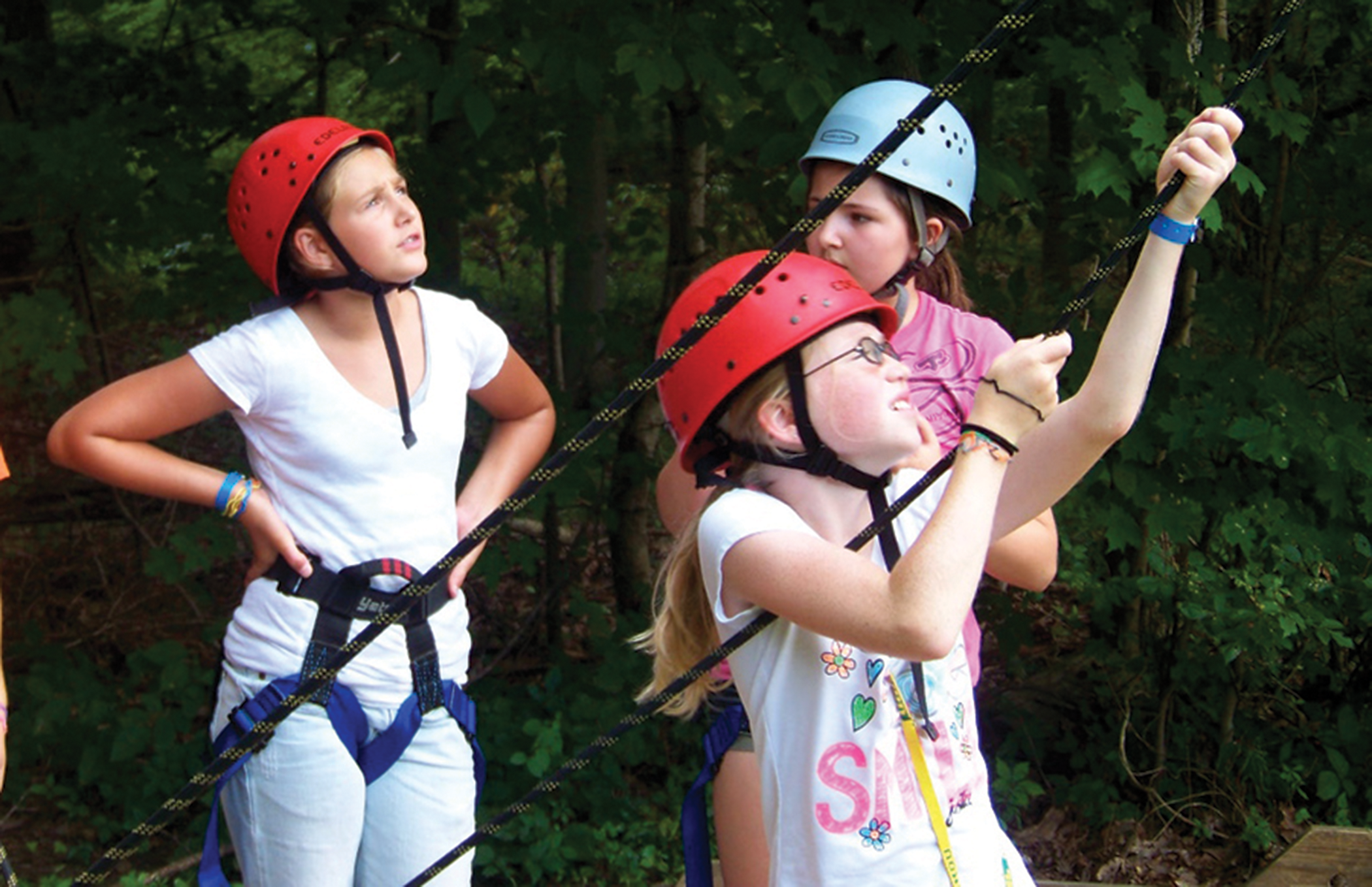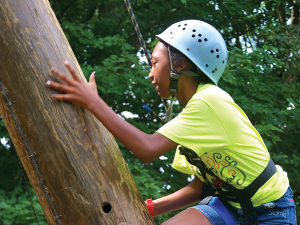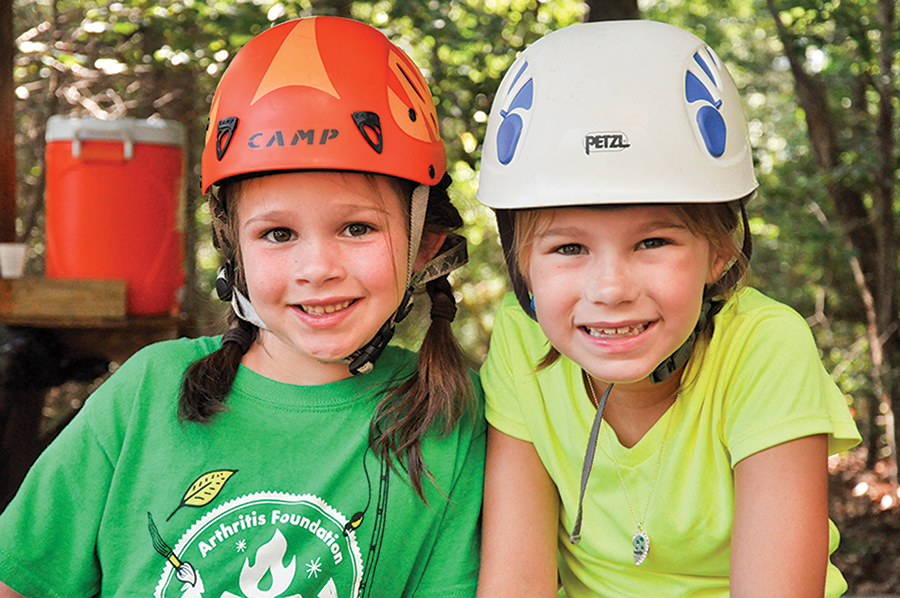“The great thing about Camp Cambria is seeing all the kids become great friends, regardless of their abilities,” Dr. Correll says. “Their days are filled with activities—canoeing, horseback riding, archery and waterskiing—and at night we have structured educational time.”
Dr. Correll says at night the campers, who range in age from 8–17, form groups within their designated cabins to discuss issues related to their condition.
“One night, we may have a dietitian or nurse talking about diet and medications, and the next, a psychologist may discuss coping skills,” Dr. Correll says.
Dr. Correll says volunteering at an arthritis camp allows her the chance to evaluate how well her young patients manage their rheumatic disease. “Volunteering at camp has allowed me to see how arthritis impacts the daily lives of my patients. I typically arrive at camp in the morning and have breakfast with the kids, and later I’ll join in on the camp activities.”
Dr. Correll notes that Camp Cambria has a “Med Shed,” where campers receive their medications as needed during the day and also get treated for rashes, bug bites, fevers and other symptoms that may arise while they’re at camp.
“It’s wonderful to see so many kids realize they aren’t alone in coping with arthritis,” Dr. Correll says. “Many of the campers return to camp again the following year, and the friendships they make at camp last beyond the summer.”
Volunteer and refer: For information on volunteering at future arthritis camps or to locate a nearby camp to refer pediatric patients, click here.
More photos: Click the images below to load the camp photo gallery.
Linda Childers is a California-based journalist who contributes health articles to a number of national media outlets. Her stories have appeared in The California Health Report, Arthritis Today, Neurology Now, Nurse.com, Minority Nurse, Lifescript.com and many other publications. An award-winning writer, Ms. Childers lives in the San Francisco Bay Area with her husband, son and rescue dog.
